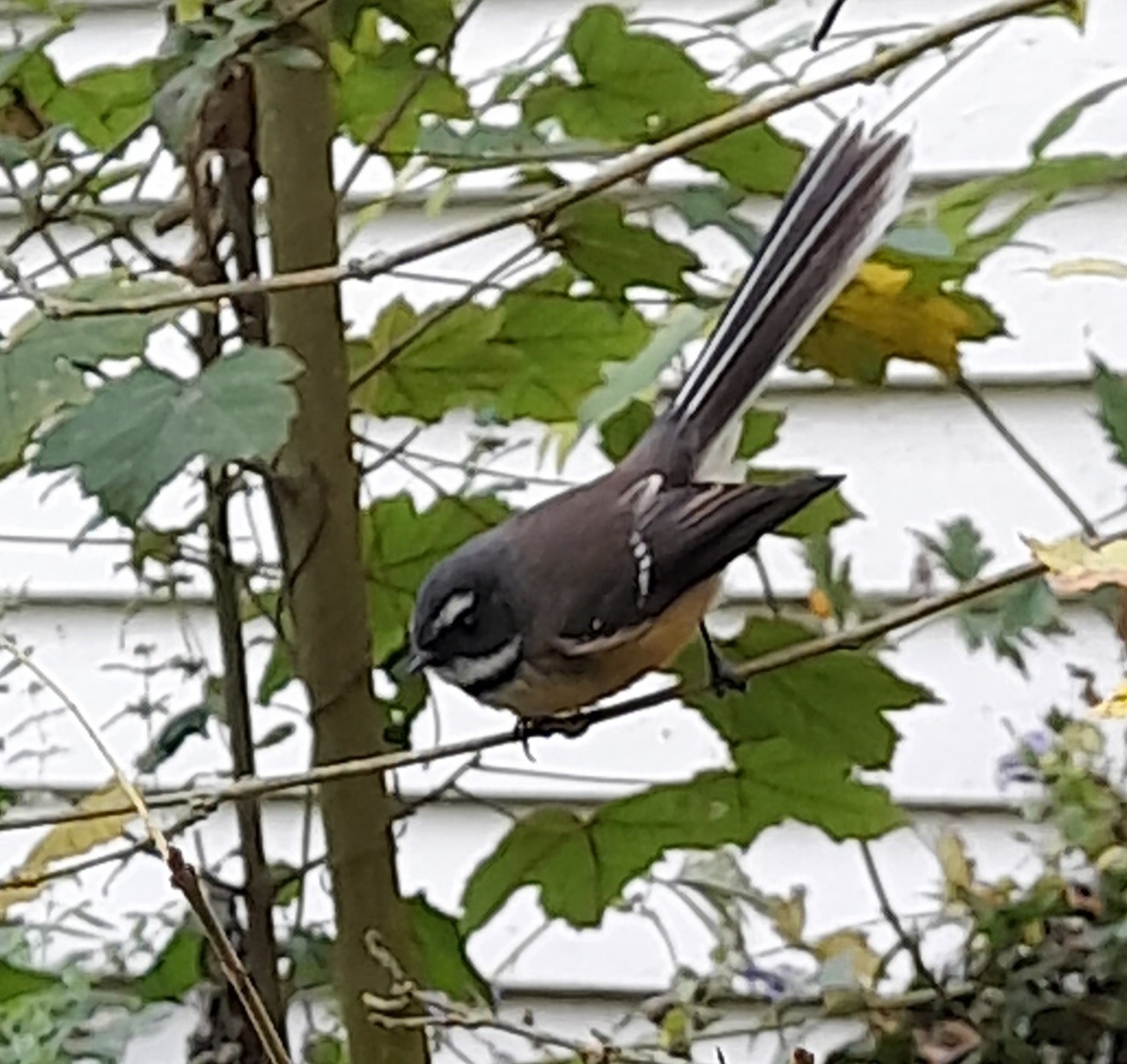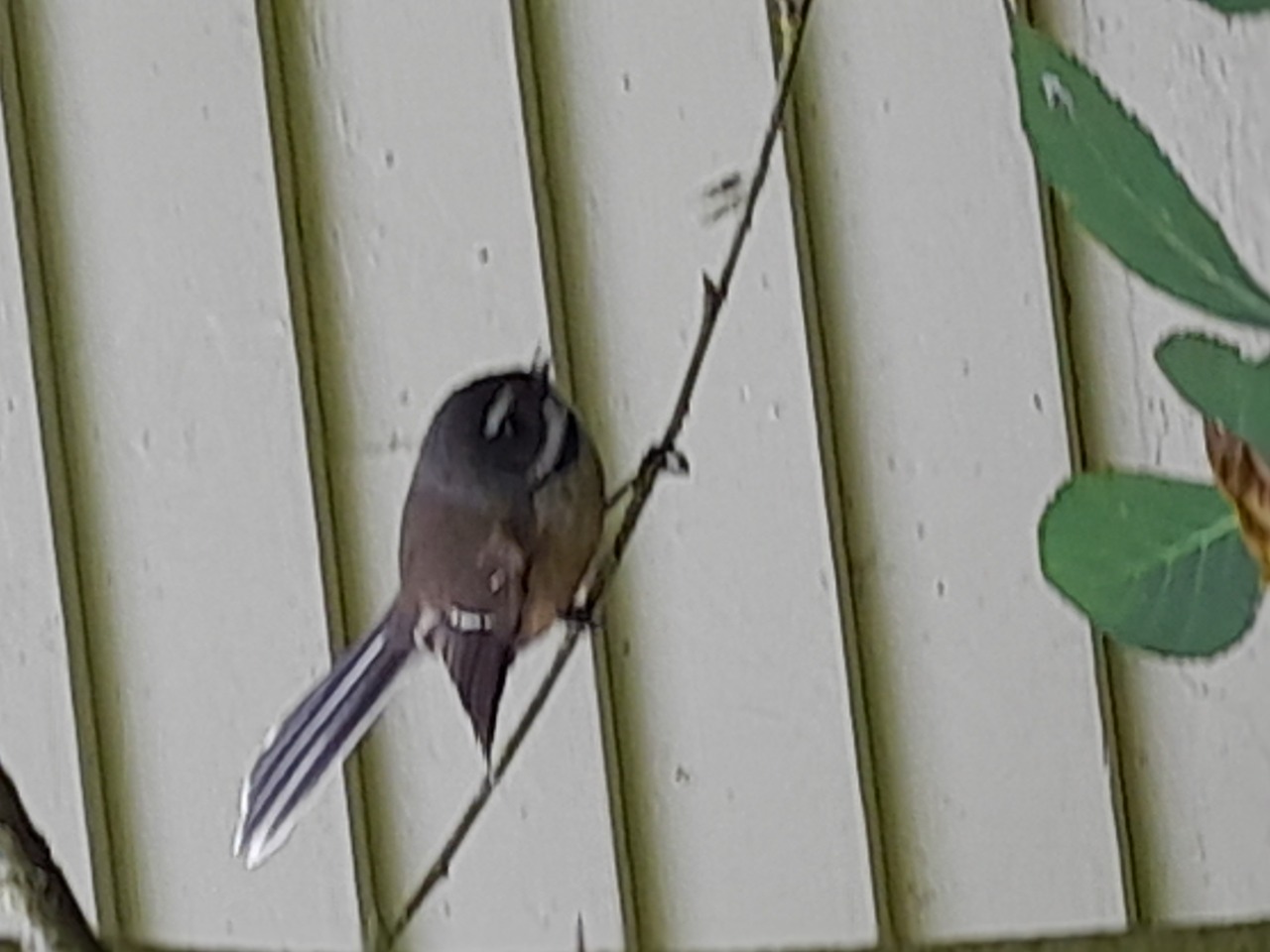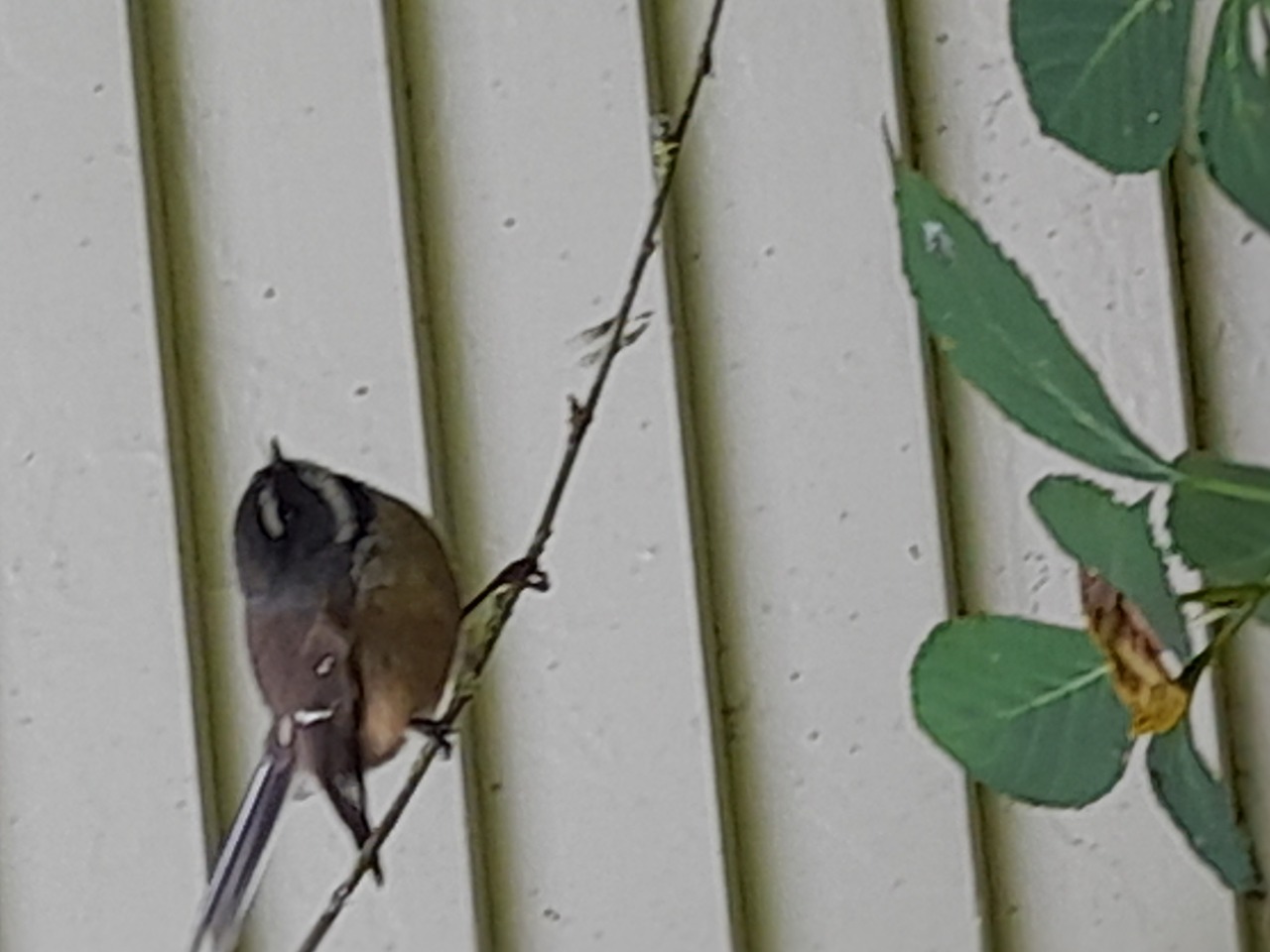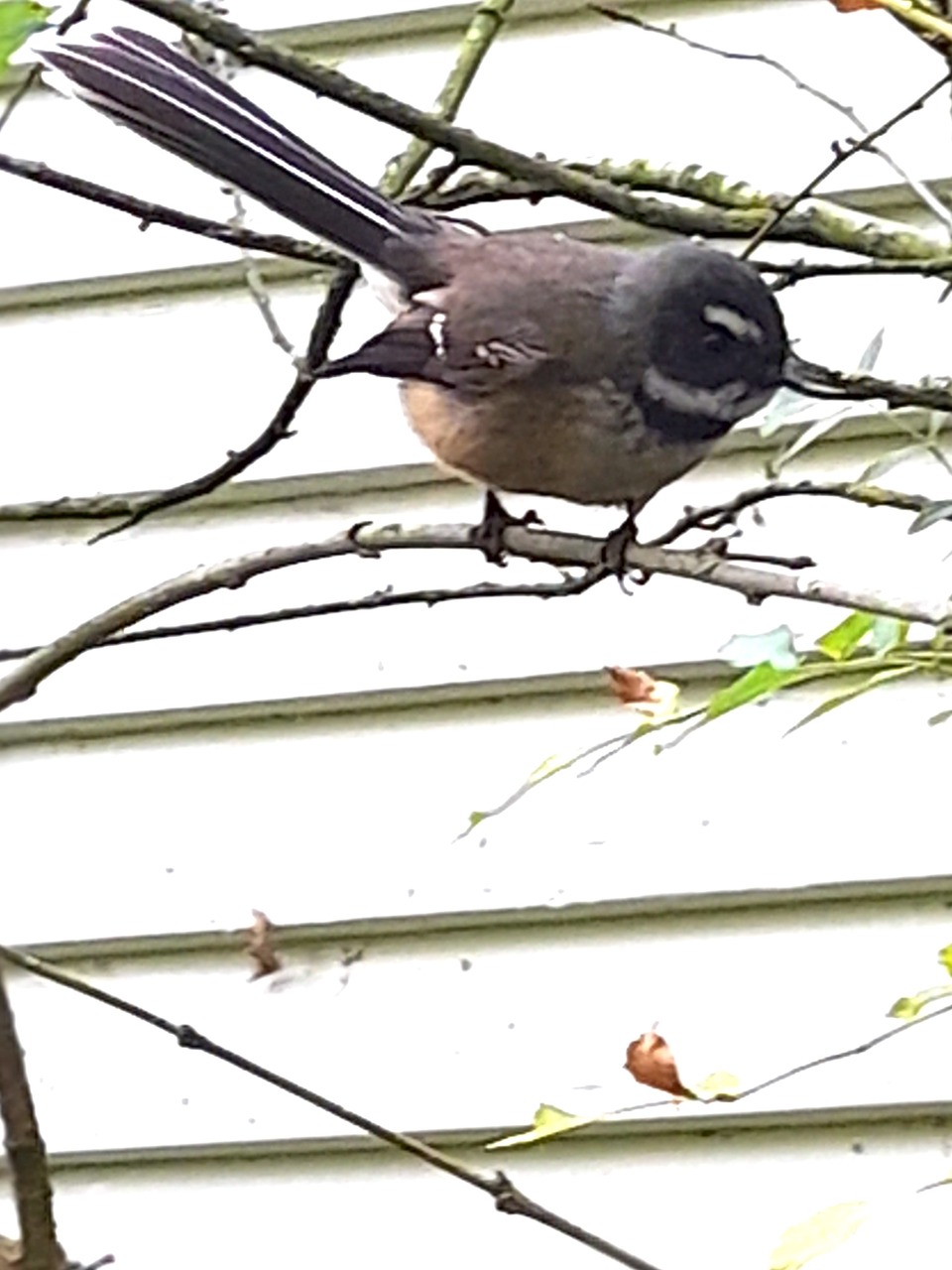
A Favorite Fantail
Whenever I go into the garden, I often hear the distinctive fluttering of a group of fantails hovering nearby. Their unusual frolicking as they dip and soar around the trees, makes me feel so very happy. Their spirit is so light and delicate as they linger on the nearby branches of our many trees, flicking their tail feathers open and shut as they cock their little heads looking at me. But, more times than not, one personable little tyke follows me around and flutters her tail-feathers as I sing old songs to her, probably a little off-key. I can actually mimic the high-pitched sounds these birds make, quite well and that attracts them to me too. There is such joyous and unfettered movement as they careen up and down the way swallows do, when they’re catching minute bugs to eat. In an instant they’re gone, perhaps a figment of my imagination, but then I turn around and my little friend is poking her head left and right as she flits from branch to branch, then stopping momentarily then jumping off to freedom. I really don’t know why this one birdie and I have such an affinity for each other but I know it’s the same one that seems to be at every window I open in the back and occasionally in the front, sitting atop the chair near the door, waiting for me to emerge from the house. And the longer my song, the longer she stays near me. That seems to be the crowning glory for me --this mutual admiration society of one semi young/old woman and one perky wee flying insect eater. I do know that the experts say that fantails follow people because we’re shaking up the bugs when we walk and so since that’s their whole diet, that’s why they seem to stay close. But this bird stays around longer than the others and comes inside the house too. She probably thinks I’m the supermarket of fantail num-nums or something like that. The others seem to be oblivious to that. But not her.
I seem to attract the birds and the bees and the spiders and the frogs and the crickets and the pussycats and the pukekos and the paradise ducks and the magpies and the wax-eyes and the one wood pigeon that must have lost his mate, and the pheasant, also looking for his long-lost lover and God only knows what else that is lurking here in the deep shadows. Everything seems to thrive in this garden world we inhabit. Lucky us.


